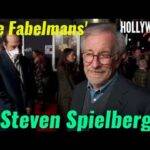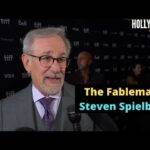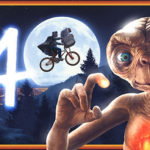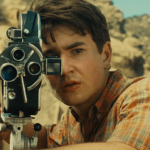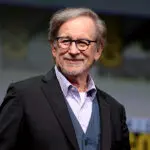Table of Contents
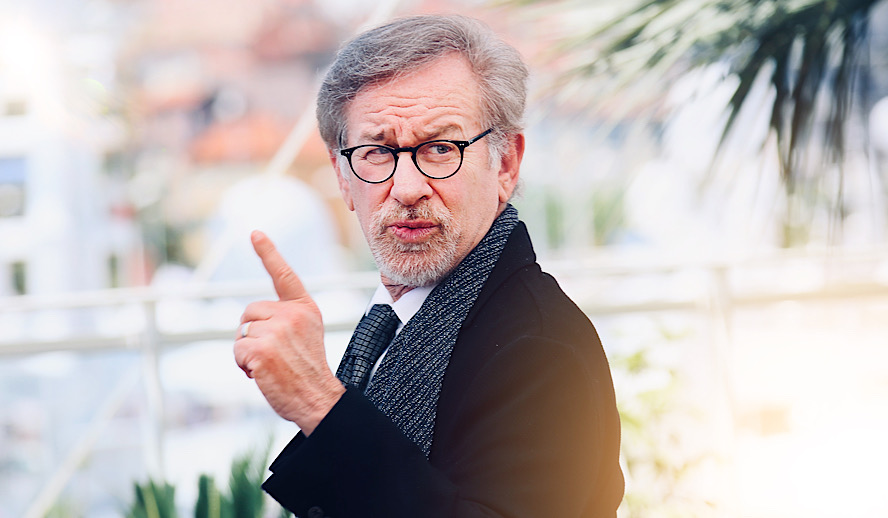
Video Version of this Article
Photo/Video: Steven Spielberg at the Cannes Film Festival/Denis Makarenko/Shutterstock/Hollywood Insider YouTube Channel
Are Superhero Films Cinema?
Much has been made in recent years of a supposed war between auteur directors and the Marvel movie-makers. Martin Scorsese, the officer of the old guard to fire the first shot, likened Marvel movies to amusement park rides and went out of his way to say that the MCU is, “not cinema, it’s something else.” It’s a bit like that scene in Wes Anderson’s ‘The Royal Tenenbaums’, when Owen Wilson’s character Eli Cash complains, “Why would a reviewer make the point of saying someone’s not a genius? Do you especially think I’m not a genius?” Scorsese’s point really hinges on the weight of the word ‘Cinema’, and his take on Marvel movies isn’t really that controversial, but given the reaction of MCU diehards you would think Scorsese was Thanos himself, turning half of the Multiplex to dust with a snap of his fingers.
Related article: The Complete List of 2021 Oscar Nominations – Celebrations, Surprises & Snubs | The Show Must Go On
Related article: ‘Duel’: A Look Back at Steven Spielberg’s Directorial Debut Almost Fifty Years After Its Original Release
Of course, what came next was a string of Scorsese’s fellow auteurs lining up to dunk on superhero movies. Ridley Scott said they have ‘no story’. David Cronenberg called them ‘adolescent’ and ‘boring’. Ken Loach said they were ‘commodities like hamburgers’ and Alejandro Iñárritu called them ‘cultural genocide’. Coming to Scorsese’s defense, Francis Ford Coppola said, “Martin was kind when he said it’s not cinema. He didn’t say it’s despicable, which I just say it is.”
Steven Spielberg on Superheroes
Who could be better to provide some middle ground on this debate than Steven Spielberg, the ultimate arbiter of Pop Cinema Americana? Spielberg, the enraptured capturer of our collective culture, the archivist of the American Dream. Spielberg by no means offered unadulterated adulation for Marvel and the like; instead, he simply listed a few superhero films he felt had merit. He offered a few safe picks: the original ‘Superman’, ‘The Dark Knight’, and ‘Iron Man’; only to surprisingly single out ‘Guardians of the Galaxy’ for particular praise. Spielberg lauded James Gunn’s film of D-list superhero misfits, saying, “When his projection was over, I left with the feeling of having seen something new in movies, without any cynicism or fear of being dark when needed.”
Subscribe to Hollywood Insider’s YouTube Channel, by clicking here.
It’s interesting to consider Spielberg’s career through the lens of his consideration of the superhero genre. In the same interview in which he praised James Gunn, Spielberg clarified that he prefers regular heroes to superheroes. Heroes work on a more personal scale, and have a greater chance of failure than superheroes. Perhaps that’s another reason Spielberg was more drawn to the scrappy Guardians than their more juiced-up counterparts. The Guardians, at least before their induction into the Avengers, weren’t very super, and early on they weren’t heroes at all. Their debut was fresh, sincere, and occasionally creepy, but above all entertaining–all traits Spielberg has prioritized in his own work.
From Big Shark to Tony Stark
Maybe it’s not that surprising that Spielberg would be the New Hollywood director to offer pragmatism regarding the superhero-ification of the Hollywood blockbuster; after all, he is often credited with creating the first blockbuster with his 1975 film ‘Jaws’. Spielberg has always gravitated more towards gee-whiz science fiction fantasy than many of his New Hollywood contemporaries. ‘Jaws’, ‘Indiana Jones’, and ‘Jurassic Park’ all spawned massive franchises. While Spielberg himself has never contributed to a superhero film, his acolyte Joe Johnston directed ‘Captain America: The First Avenger’–Johnston got his start doing visual effects on ‘Raiders of the Lost Ark’ and helmed ‘Jurassic Park III’.
Spielberg laid the groundwork for the playground modern superhero movies take place in, at least partly. If superhero movies are a rampaging tyrannosaur set to devour Cinema as we know it, Spielberg may be the John Hammond who unleashed the beast. It’s worth remembering that Hammond’s incredible scientific breakthrough was not driven by a desire for knowledge or power, but for the sake of entertaining children.
Related article: The Power of Positivity: Ikorodu Bois + Chris Hemsworth + Russo Brothers + Sam Hargrave
Limited Time Offer – FREE Subscription to Hollywood Insider
If one takes a step back from gloom-and-doom snobbery, one could charitably define Spielberg’s oeuvre as evidence of free-market Hollywood operating at its optimum. Box office numbers make it clear that Spielberg gives the people what they want, but the director has shown a preference to balance his bombast with intellect and challenging themes. ‘Jaws’ critiques capitalism. ‘Jurassic Park’ critiques technological advancement. ‘Close Encounters of the Third Kind’ contemplates humanity’s search for meaning. These themes radiate through their respective films, and even filter into the works of the next generation filmmakers that Spielberg has inspired. Even if modern blockbusters only bear a superficial resemblance to the Spielberg forebears, they are improved for having Spielberg as an angel on their shoulders.
Anti-Antiheroes
Since Spielberg stated that he finds heroes to be more interesting than superheroes, his filmography can be analyzed by what kind of heroes he prefers. For protagonists, Spielberg frequently chooses scientists: Indiana Jones is a professor of Archaeology, Matt Hooper from ‘Jaws’ is an ichthyologist, and the trio from ‘Jurassic Park’ are all experts in various fields. In scientists, Spielberg finds natural curiosity that he can channel into the viewer. The moments of discovery in these films are incredibly iconic. In ‘Jurassic Park’, it’s the moment when Dr. Grant and Dr. Sattler first see the herd of massive brachiosauruses walking through the valley. In ‘Jaws’, the moment actually belongs to police chief Martin Brody–a look of existential horror dawns on his face as he sees the carnage wrought by a great white shark. One could without hyperbole that this is one of the most iconic scenes in Cinema.
Related article: Hollywood Insider’s CEO Pritan Ambroase: “The Importance of Venice Film Festival as the Protector of Cinema”
Related article: The Masters of Cinema Archives: Hollywood Insider Pays Tribute to ‘La Vie En Rose’, Exclusive Interview with Director Olivier Dahan
Students of Spielberg are likely to have heard the term ‘the Spielberg Face’–it’s the existential moment in a Spielberg film when a character gazes, mouth slightly agape, frozen in wordless wonder. Frequently, a Spielberg protagonist has not only the capacity but also the desire to be humbled. Unlike many other auteur directors, Spielberg avoids antiheroes, preferring his characters’ flaws to be personal fears and insecurities they can overcome in a climactic moment. Spielberg protagonists are vessels through which the audience can experience his fantastic worlds, and misanthropic tendencies would only complicate the ease with which audiences can see through their eyes.
Intellect and Virtue
The director developed this preference early on. In the novel ‘Jaws’, Matt Hooper has an adulterous affair with Martin Brody’s wife. Spielberg insisted that the plot be boiled down to ‘man vs. shark’. His version of Hooper is simply a shark-obsessed scientist. Indiana Jones, perhaps the Spielberg character closest to being a superhero, is steadfast about his commitment to knowledge for knowledge’s sake. Over the four films Spielberg directed about the whip-wielding treasure hunter, he is confronted with treasures that can destroy (‘Raiders of the Lost Ark’), can grant eternal life (‘The Last Crusade’), and can offer unlimited knowledge (‘The Kingdom of the Crystal Skull’).
Yet Indiana Jones’ kryptonite is not greed or a lust for power–its snakes. Even Jurassic Park’s Dr. Ian Malcolm, one of Spielberg’s most egomaniacal characters, warns against meddling with the forces of nature for personal gain. While Spielberg’s films do often feature characters heroically squaring off against intimidating forces, the director finds a subtle, spiritual heroism in the surrender to a moment of awe.
Related article: What Is an Oscar Bait Film? How to Be Nominated for and Win an Academy Award
Related article: Steven Spielberg’s ‘West Side Story’: What to Expect From the Legendary Director’s Revision
Contrast Spielberg’s heroes with those of Marvel or DC, and you’ll find that while some of Spielberg’s protagonists may be handy with fisticuffs, they do not settle their disputes in battles or displays of physical might. The director does not equate one’s ability to violently overcome one’s foes with worthiness. In his philosophy, it is not might but intellect and virtue that are the forces of progress. There is a certain didacticism to comic book heroes. They are stories of good versus evil, justice versus injustice. Superheroes like Batman and Captain America originated during World War II, and were frequently used in wartime propaganda to push the notion of American supremacy. One could argue that this is still their primary function. ‘Iron Man’, the film that launched the MCU, pitted Tony Stark against Middle Eastern terrorists. The MCU gave us a redemption tale of an arms manufacturer in 2008, a year that saw a spike in civilian deaths in US-occupied Afghanistan.
Spielberg on Patriotism
Critics have pointed out and Spielberg himself has acknowledged his patriotism, but Spielberg is willing to ideologically cross-examine American values even in his big blockbuster films. This is especially true in his post-9/11 films. ‘Minority Report’ used a sci-fi world in which police use psychics to arrest criminals before they commit their crimes to critique the invasive expansion of surveillance created by the PATRIOT Act. ‘The Terminal’ faces post-9/11 anxiety and changing American policies by taking place entirely in an airport that doubles as a prison for a political refugee, lampooning the impotent posturing of Homeland Security by having an officious bureaucrat serve as the film’s antagonist.
Related article: The Next Big Things: Hollywood’s New Directorial Elites are Looking More Diverse Than Ever
Related article: The Prestigious Who’s Who List of Auteur Directors: How to Become A Film Genius
‘War of the Worlds’, a film that pitted humanity against far more technologically-advanced alien invaders, could be interpreted as a wartime empathy experiment. In Spielberg’s analogy, alien invaders are to Americans as Americans are to Middle Eastern insurgents. While the film ends with American triumph, it’s a moment that serves as a coded critique of American heroism. Can Goliath be heroic, or is that part only for David? Intriguingly, the invasion is thwarted not by the insurgency, but by the invaders’ failure to adequately understand the world they were invading.
‘Munich’ takes on the War on Terror again, exploring that modern conflict through the lens of Mossad’s retributive assassinations of 11 Palestinians allegedly responsible for the killing of 11 Israeli athletes at the 1972 Summer Olympics in Munich. ‘Munich’ is a moody and apprehensive film, laying bare Spielberg’s ambivalence regarding the righteousness of the West’s operations in the Middle East. Superhero films often feign interest in political issues by making supervillains extremists for potentially virtuous causes–Thanos just wanted to solve overpopulation, remember? If a philosophical conversation occurs in an MCU or DC film, its purpose is to serve as window dressing for the next exchange of special effects punches and laser beams. In Spielberg’s films, the special effects exist to amplify the themes, not the other way around.
Related article: The Amazing Taika Waititi Movies, Ranked | Director of the Upcoming ‘Thor: Love and Thunder’
Related article: A Tribute to Tom Hanks, Oscar-Winning Everyman of ‘Toy Story’, ‘Forrest Gump’
Spielberg on WWII
A charitable reading of why we divide people into heroes and villains is that we do so to create a better world. Heroic actions improve society, and villainous actions weaken it. While Spielberg’s films usually have clear heroes and villains, he does not paint good and evil in black and white. Look at his World War II films. It’s an era often considered to be the last major world conflict with clear-cut forces of good and evil, and even in that context, Spielberg challenges our preconceptions.
In ‘Empire of the Sun’, the British schoolboy Jim idolizes the Japanese pilots despite the fact he is being held in a Japanese POW camp. For the dramatization of the Normandy Invasion in ‘Saving Private Ryan’, Spielberg used handheld cameras to intimately depict the horrible suffering endured by the GI’s tasked with taking the beach. Once that gruesome, grueling scene finally ends, an American soldier with a flamethrower shoots a stream of fire into a turret full of Germans. As the Germans burn to death, an American exclaims, “Don’t shoot! Let ‘em burn!” Spielberg is a master of putting the audience in the mindset of the protagonists, and in that scene, the audience is forced to reckon with a sense of vengeful exuberance at the sight of human beings burned alive.
In ‘Schindler’s List’, Spielberg makes sure SS officer Amon Goeth is always well-lit while also giving him a persistent cold. In a scene in which he chooses a Jewish prisoner to be his housemaid, he gently tells her to not get too close so that she won’t get sick. Moments later, he casually executes a Jewish engineer. Goeth is neither a demon nor an automaton–he is a profoundly humankind of evil. These are not stories of heroes vs. villains, they are stories of compassion vs. hatred, of innocence vs. destruction.
Related article: A Tribute to Leonardo DiCaprio: The Generation Defining Thespian & Hollywood Legend
Related article: A Tribute to Barry Jenkins: Hollywood’s Most Revolutionary Filmmaker & Oscar Winner
The Lawyer: The Ideal Spielberg Hero?
Somewhat surprisingly for a director so synonymous with blockbuster entertainment, Spielberg has a fondness for lawyers. He has used them as protagonists four times, in ‘Lincoln’, ‘Amistad’, ‘Bridge of Spies’, and even ‘Hook’. By comparison, only once has he fed a lawyer to a T. Rex–a clear bias. Lawyers give Spielberg a very natural way to present dramatic philosophical arguments of right and wrong as the centerpiece of his films–for lawyers, after all, this is their job. In ‘Lincoln’, the lawyer-turned-16th President carefully constructs a legal framework for the abolition of slavery, contending with the varying philosophies of fellow lawyers such as Secretary of State William H. Seward, Secretary of War Edwin Stanton, Congressman Thaddeus Stevens, and Confederate Vice President Alexander Stephens.
Hanging in the balance are not only the fates of Black Americans, but also the fates of thousands of Civil War soldiers still fighting the war to end slavery. In ‘Amistad’, a lawyer is hired by abolitionists to take up the cause of Africans illegally kidnapped by slavers. As his clients do not speak English, Amistad’s hero must strive to communicate his case to both the judge and the defendant, questioning the humanity of the US legal system in the process.
‘Bridge of Spies’ casts Spielberg everyman go-to Tom Hanks as an insurance lawyer suddenly thrust into the world of international intrigue when he is tapped to be the legal representation of a Soviet spy. Rather than throw the trial and allow the man to be executed, Hanks’ character heroically fights to give the best representation he can, even if it means becoming the victim of the mob justice being dispensed by anti-Communist zealots.
Related article: Martin Scorsese: 32 Facts on the Powerful Auteur of Cinema Synonymous with Hollywood
Related article: FACT-CHECKED Series: 32 Facts on Hollywood Legend Quentin Tarantino
Also worth mentioning is ‘The Post’, a litigation of the Vietnam War that cast Washington Post reporters into a legal battle with President Richard Nixon. Coming at a time when an American President constantly belittled the media as ‘fake news’, ‘The Post’ presented truth-seeking journalists as American heroes. Finally, while it may not have the philosophical gravitas of other Spielberg legal dramas, ‘Hook’ casts Robin Williams as a Peter Pan who has grown up to be a jaded corporate lawyer and must fight Captain Hook for custody of his children. Sometimes in a Spielberg film, being a hero is as simple as being a good dad.
Spielberg’s Mightiest Heroes
Spielberg knows how to pull our emotional heartstrings. He knows how to get us to believe in his heroes, and how to present his reading of the American experience in a compelling and convincing way. While he is not personally invested in the current superhero craze, the filmmakers who are helming those films are absolutely beholden to him for his technical and stylistic innovations and his contributions to the American mythos. ‘Jaws’ made blockbusters possible. ‘E.T.’ and ‘Close Encounters of the Third Kind’ allowed sci-fi fantasy to evolve from B-movie to big-budget material.
‘Indiana Jones’ was a prototype for the wisecracking superhero. ‘Jurassic Park’ made it possible for CGI characters to share the screen with human actors. ‘A.I.: Artificial Intelligence’ debuted virtual sets. ‘The Adventures of Tintin’ and ‘The BFG’ brought advancements in mo-cap technology. ‘Ready Player One’ combined mo-cap, computer animation, and live-action to create a fully immersive digital world.
Related article: A Tribute to Barry Jenkins: Hollywood’s Most Revolutionary Filmmaker & Oscar Winner
Related article: Worst Oscar Snubs: The Academy Awards Failed By Ignoring These Great Movies and Performances
Spielberg also paved the way for the tight-knit, multi-film collaborations that allow behemoths like Marvel Films to run like well-oiled machines. You could say that Spielberg assembled his own team of filmmaking Avengers. He has worked often with actors Tom Hanks, Richard Dreyfuss, Harrison Ford, and Mark Rylance. Producer Kathleen Kennedy helped shape Spielberg’s worlds for years; she now leads Lucasfilm. Janusz Kamiński joined Spielberg in 1993 and helped the director hone his trademark visual style, which employs dramatic painterly techniques to illuminate and shade Spielberg’s heroes and villains. Production designer Rick Carter has supplied the aesthetic for many of Spielberg’s fantasies, and editor Michael Kahn has given form to all but one of Spielberg’s narratives, making him an inextricable part of the Spielberg legend.
Perhaps Spielberg’s greatest ally is his composer. John Williams made audiences come to expect lush symphonic scores in blockbusters, influencing how these kinds of stories impact the psyche. Williams only worked on one superhero score, that of the original Superman, but sounds in his style continue to usher in the heroes of today’s cinematic universes. For many, the music of Williams is synonymous with Cinema, making his scores the secret ingredient that elevates Spielberg to the absolute zenith of Hollywood. Spielberg may have provided the spark that gave life to superhero universes, but he remains the greatest American director thanks to his commitment to humble, human heroes and self-contained stories. Spielberg will continue to innovate. The world is watching.
An excerpt from the love letter: Hollywood Insider’s CEO/editor-in-chief Pritan Ambroase affirms, “Hollywood Insider fully supports the much-needed Black Lives Matter movement. We are actively, physically and digitally a part of this global movement. We will continue reporting on this major issue of police brutality and legal murders of Black people to hold the system accountable. We will continue reporting on this major issue with kindness and respect to all Black people, as each and every one of them are seen and heard. Just a reminder, that the Black Lives Matter movement is about more than just police brutality and extends into banking, housing, education, medical, infrastructure, etc. We have the space and time for all your stories. We believe in peaceful/non-violent protests and I would like to request the rest of media to focus on 95% of the protests that are peaceful and working effectively with positive changes happening daily. Media has a responsibility to better the world and Hollywood Insider will continue to do so.”
Ways to support Black Lives Matter Movement to end systemic racism
More Interesting Stories From Hollywood Insider
– Want GUARANTEED SUCCESS? Remove these ten words from your vocabulary| Transform your life INSTANTLY
– Compilation: All James Bond 007 Opening Sequences From 1962 Sean Connery to Daniel Craig
– Do you know the hidden messages in ‘Call Me By Your Name’? Find out behind the scenes facts in the full commentary and In-depth analysis of the cinematic masterpiece
– A Tribute To The Academy Awards: All Best Actor/Actress Speeches From The Beginning Of Oscars 1929-2019 | From Rami Malek, Leonardo DiCaprio To Denzel Washington, Halle Berry & Beyond | From Olivia Colman, Meryl Streep To Bette Davis & Beyond
– In the 32nd Year Of His Career, Keanu Reeves’ Face Continues To Reign After Launching Movies Earning Over $4.3 Billion In Total – “John Wick”, “Toy Story 4”, “Matrix”, And Many More
steven spielberg, steven spielberg, steven spielberg, steven spielberg, steven spielberg, steven spielberg, steven spielberg, steven spielberg, steven spielberg, steven spielberg, steven spielberg, steven spielberg, steven spielberg, steven spielberg, steven spielberg, steven spielberg, steven spielberg, steven spielberg, steven spielberg, steven spielberg, steven spielberg


